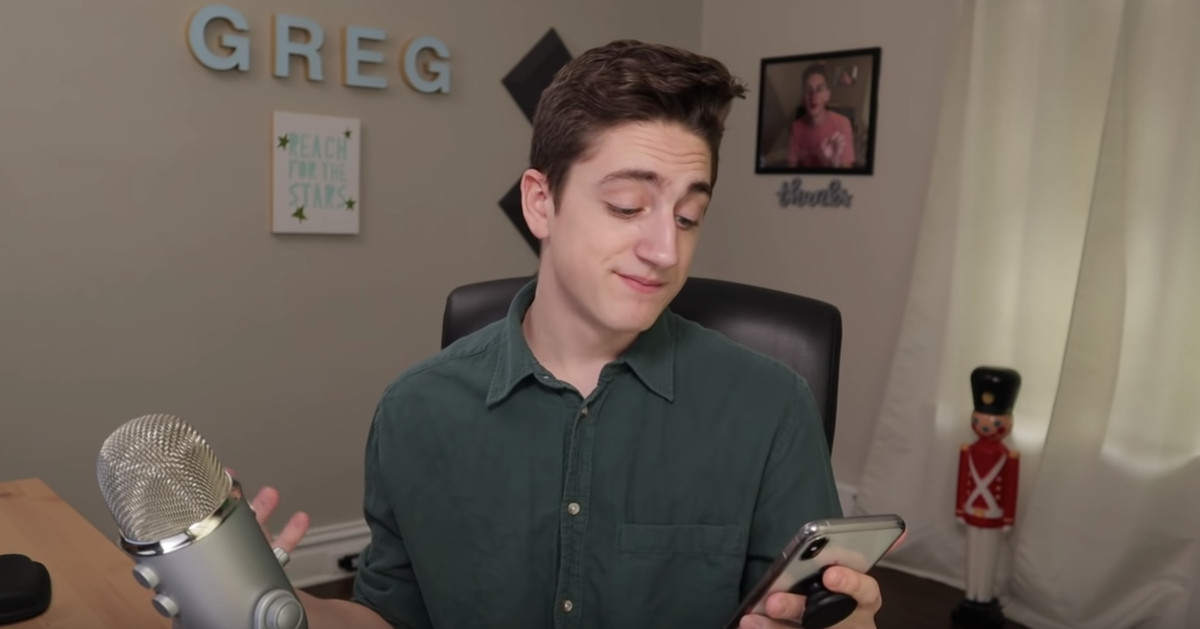
YouTube creators and Twitch streamers have been performing terrible a capella covers of popular songs in hilarious attempts to get around YouTube’s widely criticized copyright strike system.
In recent months, YouTube creators have run into copyright issues while making TikTok reaction videos, where they collect cringey TikTok clips and either react or provide commentary on them. But those TikTok videos contain music from artists signed to labels like Sony and Warner, and those labels will issue copyright claims, preventing creators from monetizing their videos.
To work around that, creators like Danny Gonzalez and Kurtis Conner have started replacing the music with their own singing. Gonzalez and Conner half-heartedly sing songs like Linkin Park’s “In The End” and Imagine Dragons’ “Believer” while the corresponding TikTok video plays on screen. Both creators explain in their videos why they’re singing instead of playing back the music, with Conner joking, “I think that makes it better.” It’s a little painful to hear, but ultimately a very fun loophole in the copyright system that YouTube has to enforce.
The move effectively allows their videos, which weren’t able to be monetized in the past because of copyright infringement, to finally be monetized. The hope is that major labels like Sony Music or Warner Music Group can’t claim copyright infringement, or at least that the singing won’t trigger YouTube’s automated system for finding copyrighted content.
YouTube creators have dealt with overzealous copyright claim infringement and takedowns for years, prompting debates over Fair Use policies and monetization. If the owner of copyrighted content issues a takedown notice or claims a video was infringing on their copyright, YouTube has to act. That can mean taking a video down, or sending any money made from ads to the copyright owner, instead of the video’s creator.
TikTok react videos are an interesting case of how copyright claims on YouTube work — and why creators are so frustrated. TikTok videos include less than 10 seconds of music, yet that can still be enough to receive a copyright claim — on TikTok itself, the music is all licensed from the labels.
The issue remains that creators on YouTube are trying to monetize videos that include content they didn’t create. They aren’t partnered with Sony or Warner Music like TikTok currently is. React videos are a huge part of YouTube’s current culture; people lift popular movie trailers and film their reactions to what’s happening on-screen. These videos are typically monetized.
“I have removed music owned by Warner music group as I have no intentions of unfair use of their music,” creator Holo FX wrote in the description of a TikTok compilation video. “I am not claiming to own any of the music played. We are simply dancing to it and used the app TikTok to create this.”
Gonzalez and Conner’s workaround doesn’t just work for TikTok, either. Gaming creators and streamers have taken on the same loophole to get copyrighted songs past YouTube’s Content ID system. In the example below, creator The Apekz sings “Let It Go” from Frozen in an attempt to ensure his video about Kingdom Hearts 3, which includes the song, doesn’t get demonetized.
By the time the video’s over, he jokes that he hopes his poor singing means he won’t get copyrighted, adding that he doesn’t want to be “forced to sing over any more songs” just to avoid getting copyrighted.
Bagikan Berita Ini















0 Response to "Creators are using a new tactic to air grievances over copyright policies - The Verge"
Post a Comment